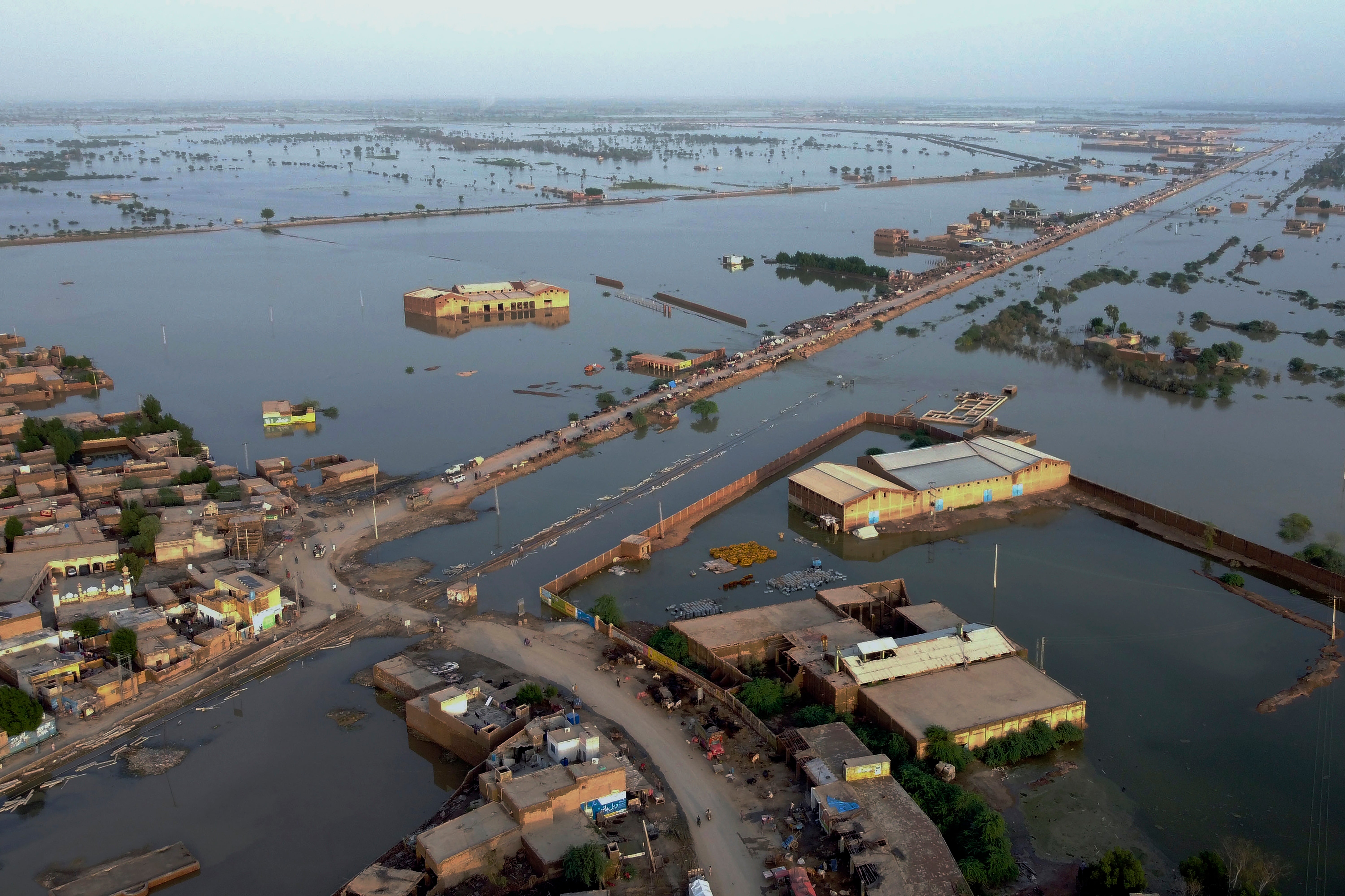G7 launches climate disaster fund but sceptics warn it is ‘distraction’ from loss and damage aid
Critics question whether insurance initiative makes sense when places could become ‘uninsurable’ due to worsening extreme weather events

The G7 has launched a new fund to help countries hit by climate disasters recover more quickly but sceptics have warned it should not be a “distraction” to commitments on loss and damage compensation.
The scheme launched on Monday during the Cop27 summit in Egypt’s Sharm el-Sheikh aims to provide climate risk insurance and pre-arranged disaster finance for countries most at risk, with Pakistan, Ghana and Bangladesh set to be among the first recipients.
Led by Germany, the world’s seven biggest economies, the G7, and the group of 58 climate-vulnerable nations, referred to as V20, launched the new fund after months of talks. It is set to kick off as early as next year.
Germany said the funding would look to strengthen social protection schemes and climate risk insurance so communities can access aid and recover quickly when an extreme weather event, such as flooding, strikes.
“If there is no protection scheme in place, a drought can mean that a smallholder farmer loses not only her harvest but also her entire livelihood because she cannot afford to buy new seeds,” Germany’s ministry for economic development and cooperation (BMZ) said in a statement.
Countries such as Canada, Ireland and Denmark have so far pledged €40 million to the initiative. US President Joe Biden also announced the US would support the “Global Shield” initiative during his Cop27 speech on Friday.
But critics question whether an initiative with insurance at its core makes sense when places could become “uninsurable” due to worsening extreme weather and multiplying disasters.
ActionAid International labelled the fund a “distraction” that should not be mistaken for loss and damage funding.
“At Cop27 there’s huge pressure on rich countries to agree to a financing facility on loss and damage, so that communities on the front lines of the climate crisis can rebuild and recover after disasters,” Teresa Anderson, Global Lead on Climate Justice for ActionAid International said.
“While the Global Shield initiative is a sign that countries recognise the need to do something, this is a distraction.”
“Everyone knows that insurance companies, by their very nature, are either reluctant to provide coverage, or reluctant to pay out. But when it comes to loss and damage this is a matter of life and death,” she adds.
“An initiative that involves northern countries subsidising northern-owned insurance corporations should not be mistaken for loss and damage finance that supports communities on the front lines of the climate crisis.”
Harjeet Singh, head of global political strategy at Climate Action Network (CAN) International and a vocal voice for loss and damage finance, expressed similar scepticism over the new insurance-based finance.
“The Global Shield cannot be hyped up as a solution to address the increasing scale of floods, storms and droughts, fuelled by climate change,” he said.
“Disproportionate focus on a new mechanism that does not cover slow onset events such as rising sea levels or loss of language and culture cannot meet the needs of communities on the ground.”
“It cannot take away attention from the primary demand of developing countries for establishing a finance facility for loss and damage at Cop27.”
The loss and damage finance, which refers to the massive losses vulnerable countries are suffering due to increasing global warming that they can not adapt to, remains the top focus at this year’s climate talks.
Finance for vulnerable communities has been one of the biggest demands from poorer countries for over 20 decades, but the issue finally made it to this year’s agenda in what was considered a major step towards climate justice.
But as the summit enters its second and final week on Monday, observers warn that for the UN climate talks to be able to effectively address the issue of justice, the facility has to come in the form of grants and not loans and insurance.
This story was published with the support of Climate Tracker‘s Cop27 Climate Justice Journalism Fellowship
Subscribe to Independent Premium to bookmark this article
Want to bookmark your favourite articles and stories to read or reference later? Start your Independent Premium subscription today.

Join our commenting forum
Join thought-provoking conversations, follow other Independent readers and see their replies